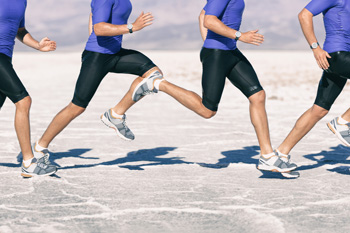
 In podiatry, biomechanics involves assessing the structure, alignment and function of the feet. The foot provides us with the ability to walk upright and has developed to adapt to whatever surfaces we walk on. Because the average person takes between 5,000 and 18,000 steps in a single day, the foot can experience stress from repetitiveness, resulting in injury. While options such as orthotics can help prevent injury, paying special attention to the strength and flexibility of the feet allow their function to improve. Therefore, if you are actively on your feet, make sure to consult with a podiatrist to help find any predisposed issues.
In podiatry, biomechanics involves assessing the structure, alignment and function of the feet. The foot provides us with the ability to walk upright and has developed to adapt to whatever surfaces we walk on. Because the average person takes between 5,000 and 18,000 steps in a single day, the foot can experience stress from repetitiveness, resulting in injury. While options such as orthotics can help prevent injury, paying special attention to the strength and flexibility of the feet allow their function to improve. Therefore, if you are actively on your feet, make sure to consult with a podiatrist to help find any predisposed issues.
If you have any concerns about your feet, contact Dr. Robert Hope from Riverside Podiatry. Our doctor can provide the care you need to keep you pain-free and on your feet.
Biomechanics in Podiatry
Podiatric biomechanics is a particular sector of specialty podiatry with licensed practitioners who are trained to diagnose and treat conditions affecting the foot, and lower leg. Biomechanics deals with the forces that act against the body, causing an interference with the biological structures. It focuses on the movement of the , the foot and the forces that interact with them.
A History of Biomechanics
Modern technological improvements are based on past theories and therapeutic processes that provide a better understanding of podiatric concepts for biomechanics. Computers can provide accurate information about the forces and patterns of the feet and lower legs.
Understanding biomechanics of the feet can help improve and eliminate pain, stopping further stress to the foot.
If you have any questions please feel free to contact our office located in Tuscaloosa, and Fayette, AL . We offer the newest diagnostic and treatment technologies for all your foot needs.
Read more about The Importance of Biomechanics in Podiatry